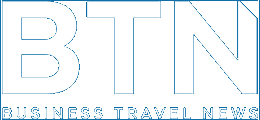Small Cos. Again Scrutinizing Travel Approaches
Small travel programs look at new policies and guardrails in a complex travel landscape.

Greenville, S.C.-based cloud technology connector ScanSource is new to managed travel. The 2,200-employee company hired Shannon Wilson as a dedicated travel manager in 2022 to put some strategy behind its spending, which now exceeds its pre-pandemic annual volume.
The company uses specialized business travel programs suppliers have devised to attract this growing small and midsize slice of the travel market. ScanSource taps these programs to make its travel budget more effective by applying discounts, garnering benefits and securing data to manage the company’s growing travel needs. And Wilson is pulling some classic—and some new—levers to ensure ScanSource travelers are making the most of their business travel budgets.
“Our focus is on traveler duty of care, convenience and cost savings,” Wilson said. “We encourage our travelers to practice discretion and frugality when making their travel arrangements. This includes making travel decisions based on convenient, safe, cost-effective options, as opposed to only [relying on] frequent-guest programs.”
In terms of newer strategies, demand management is always on the table, she said. ScanSource now sees how business can be conducted effectively via remote technologies. As travel opened back up, the company continues to “keep an eye on travel,” opting for virtual solutions when possible. Yet, added Wilson, “travel remains a necessity” for the expanding company, and one that requires more support than it did in a pre-pandemic world.
“Our focus is on improving our travelers’ customer experience,” she said, “as challenges in the travel industry remain, including the shortage of staffing … and travel disruptions.” To that end, the company manages its travel program with the support of a travel management company, a preferred corporate online booking tool and corporate card.
“We take a very hands-on approach, working closely with our employees to ensure continued compliance with our travel policies and an awareness of travel best practices and cost-saving opportunities,” she said, noting that supplier-provided SME programs had improved since pre-pandemic times.
But moving to a more fully managed travel program takes time, and Wilson has plans to do “complete upgrades” to the travel policy this year.
SME Firms in the Driver’s Seat, the Airline Seat, the Hotel Bed
ScanSource isn’t alone in putting new guardrails on a smaller-sized travel program. Travel complexity is one reason, as Wilson noted; rising expenses are another. At the beginning of 2023, Morgan Stanley in a corporate travel outlook for the U.S. noted that 32 percent of smaller companies said travel budgets had returned to pre-pandemic levels compared with 23 percent of big firms that had done so. BTN’s more recent survey showed that 59 percent of responding small and midsize firms had returned to or exceeded pre-pandemic travel spending levels.
TravelBank, an integrated expense and travel management platform focused on SME programs, has seen demand returning, according to CEO Duke Chung.
“We have seen travel come back very strongly since Covid because of the return to work and people wanting to attend conferences and offsites with their employees,” according to Chung.
Yet growing demand is not coming across the board.
“In certain sectors you see continuous growth in business travel although in some sectors due to market changes, particularly technology companies, you do see a slowdown in travel,” he said.
Chung said many SMEs look to manage travel and expense with a single facilitator, like TravelBank, which was acquired by U.S. Bank in 2021 and is adding a virtual card options. Other suppliers, like travel management company Navan, also have developed joint platforms. Legacy TMCs are getting into the game as well with products like American Express Global Business Travel’s Neo1, but small and midsize specialists have been in the market for years, providing capabilities to support travel for small and midsize travel programs.
Chung underscored the ability for agencies to support unused ticket credits and access to discounted hotel rates among a number of other key offerings.
“SMEs had a lot of credits with suppliers, and they needed a way to be able to access that, so getting help from a travel management company… was really important to help restart travel for their businesses,” he said. “We also have consortia hotel rates which have previously been available for large companies, but this has not been as easily accessible for small businesses.”
“We’re not big enough to contract ourselves, so we’re utilizing our customers’ contracts, which are definitely a lot larger than ours would be.”
— Hyde Tools’ Bob Clemence

SME Programs Aren’t OSFA (One Size Fits All)
Hyde Tools is a manufacturer of industrial machine and hand tools and decorating accessories. The company has six people who travel extensively and another four who are on the road less frequently. The company spends around $250,000 a year—about one-tenth on international travel.
Most of Hyde Tools’ travel is to industry exhibitions or in-person meetings. The exhibitions, in particular, have started back up again, according to VP of sales Bob Clemence.
Prior to the pandemic, Clemence was on the road 120 days of the year. He said the figure is now under 100.
“The company has made a decision that we’re cutting back—not the attendance of the show, but on the length of attendance at the shows,” said Clemence. “Most shows are three-day events and I used to be there for the three full days; now the company’s got me going only two days. It’s one overnight at a hotel.”
Beyond attendance at trade shows, there are the face-to-face meetings with prospects and customers, he said, but “a lot of that is now being done via Zoom or Teams.” That type of travel has been cut by at least 60 percent at Hyde Tools, he said, but without sacrificing conversions.
“We’ve been closing [deals] and our closing is just as good as it was prior to the pandemic, maybe even slightly better,” said Clemence, who acknowledged, however, that Hyde's competition for clients has become a bit less ferocious. “A lot of my competition hasn’t been able to manage through the pandemic,” he said.
When the company does send travelers on the road, they manage their own trips.
“The travel agency went by the wayside over 10 years ago, and everything is being done online. Typically, we’re using a flight tool which has now been bought by Google,” Clemence said, referring to ITA Software, which was purchased by Google in 2011 and now operates as Google Flights. “You can’t book through, but it gives you airfare pricing, so I can utilize that and book the air.”
Yet, business travel at Hyde isn’t without rules. The pandemic saw the company tighten its air policy. Previously, travelers could book any carrier whose fare was within 20 percent of the lowest logical fare. This has now been reduced to 10 percent.
“People tend to have favorite airlines because of status, so we’re allowing that,” said Clemence. For lodging, Hyde takes a different approach to accessing preferred rates, but it’s not through an agency. Rather, they take advantage of the bargaining power of their clients, since that’s who they typically are traveling to meet.
“We’re not big enough to contract ourselves, so we’re utilizing our customers’ contracts, which are definitely a lot larger than ours [would be],” he said. “They’re booking 3,000 people, so we end up getting a halfway decent rate.” Again, there is a 10 percent rate margin within which Hyde travelers can book a preferred chain, if they can find one.
How Hyde knows what was available on the day, and whether travelers are honoring that rule is an open question. For Clemence it may come down to respecting the company and your coworkers. With just 10 travelers on the road, maybe that respect is stronger than rules anyway.
“We take a very hands-on approach, working closely with our employees to ensure continued compliance with our travel policies and an awareness of travel best practices and cost-saving opportunities.”
— ScanSource’s Shannon Wilson

